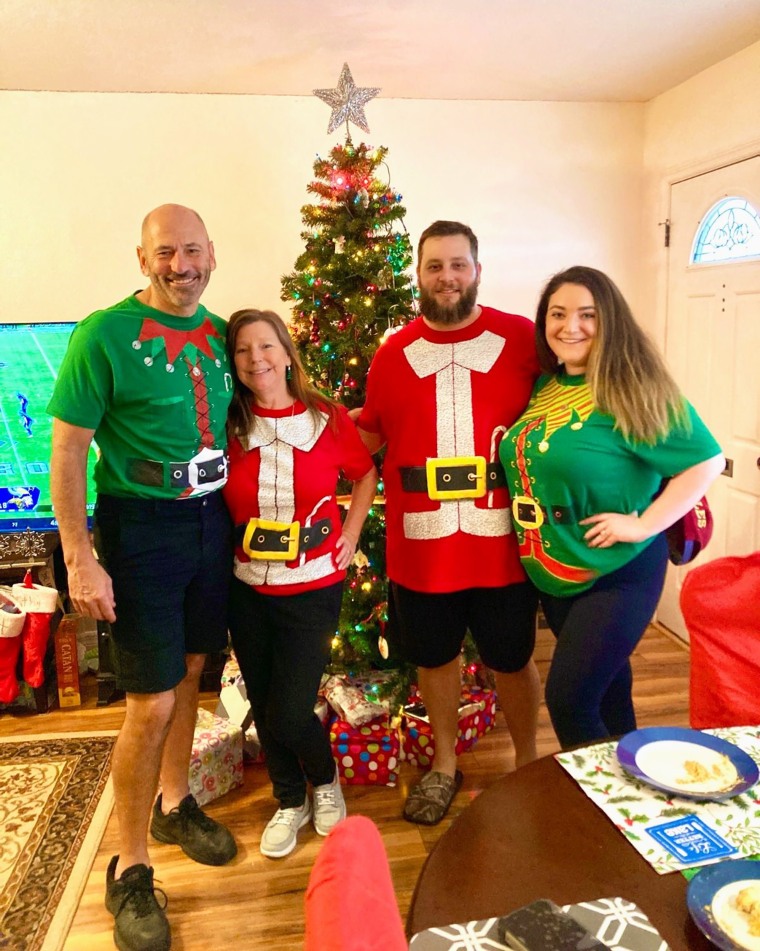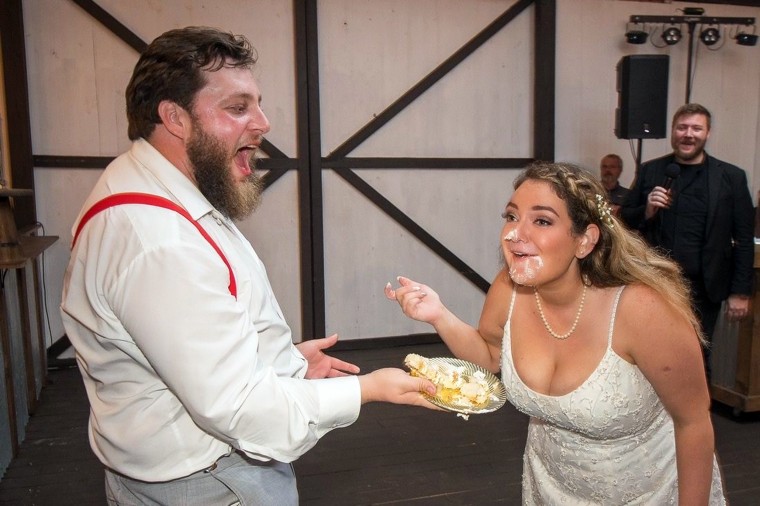Last October, Tyler Backel felt an intense pain on the right side of his stomach. The night before he cooked salmon and he worried that he accidentally made himself sick.
“I started thinking I didn’t cook the fish long enough and I was like, ‘Man, this is really bad food poisoning,’” the 27-year-old high school teacher tells TODAY.com. “That’s when I went to the hospital because it really started to hurt.”
The doctors in the emergency rooms scanned Backel and discovered a mass. Later, he learned that mass was colon cancer.
“My mind went blank,” he says. “It was a gut punch.”
A sharp pain was a sign of cancer
Backel is a first-year teacher in an emotional support classroom in central Florida.
“I love my high school,” he says. “I love the kids I work with.”
One day in late October, during second period, he felt a jolt of pain on the right side of his abdomen.

“I was like, ‘Wow, this is weird,’” he recalls. “I never really had food poisoning (before), but it seems like I had all the right symptoms for it.”
He took Pepto Bismol hoping the pain would subside. When it didn’t, he realized he needed medical attention.
“It got really intense over the next 10 minutes,” he says. “I knew something was really wrong.”
Backel told the school office he was ill and headed to the emergency room. Doctors ran some tests and performed a scan on him. When doctors told him there was a mass, he felt stunned.
“I didn’t have any symptoms leading up to that until ... that morning. I felt like I got kicked in the stomach,” he says. “It was just an intense pain out of nowhere.”
Backel didn’t realize that at his age he could even get colon cancer.
“I had never heard of anyone my age having this type of cancer. I thought it was something older people got,” he says. “At 27, I have never even met someone with this type of cancer or heard about it. I didn’t know anything about it until that morning.”
He was admitted to the hospital where doctors ran more tests and performed two biopsies of the mass. After the second, doctors felt confident that he had cancer.
“It had been starting to destroy (my colon) pretty much,” he says.
Still, he was surprised that he had cancer because he was young and healthy.
“I exercise at least four days a week and try to eat right,” Backel says. “No one in my family has ever had it. So, it was certainly surprising to say the least.”
Backel’s treatment plan includes six months of chemotherapy, once every other week for five hours in a clinic. For the next two days, he wears a pump that slowly infuses more chemotherapy into him.
“I carry this pump around kind of like a backpack and it slow feeds me more chemo while I’m not hooked up to the actual machine,” he explains.

He recently underwent PET scans so doctors could get a better look at his tumor. Doctors haven’t staged his cancer yet, but knew they needed to start chemotherapy quickly.
“They know where it is. They know how to kill it,” he says. “They just needed to start doing it.”
Eventually he will have to undergo surgery. When Backel hits three months of chemotherapy, doctors will look at how the tumor has responded and then adjust the treatment plan as needed. If the mass has shrunk, Backel will have surgery.
“They said it’s like cutting old pipe at a house,” Backel explains. “They’ll cut a section out and then re-pipe it and reconnect it and it will grow back.”
Then he will complete another three months of chemotherapy. If it hasn’t shrunk enough, he’ll continue through six months of chemotherapy and then have surgery.
Colon cancer in young adults
While colon cancer once affected mostly older adults, it has been occurring in younger people more frequently. A recent report from the American Cancer Society notes that colorectal cancer is a leading cause of cancer deaths in young people, according to previous TODAY.com reporting. It is now the most common cause of cancer death in men under 50 and the second most common cause of cancer death in women under 50.
“The continuous sharp increase in colorectal cancer in younger Americans is alarming,” Dr. Ahmedin Jemal, senior author of the study and senior vice president of surveillance and health equity science at the American Cancer Society, said in a press release. “We need to halt and reverse this trend by increasing uptake of screening, including awareness of noninvasive stool tests with follow-up care, in people 45-49 years.”
Jemal noted that younger patients often have a genetic condition that causes early onset cancer. Conditions such as Lynch syndrome, for example, can cause people to develop several cancers, including colorectal or uterine cancer, at a younger age.
For the most part, experts do not understand why younger people are developing colorectal cancer.
“The quick answer is we don’t have a perfect understanding of why it is happening,” Dr. David Liska, director of the Young-Onset Colorectal Cancer Center at Cleveland Clinic, told TODAY.com last year. “We do know that it is happening, and it’s happening consistently now for the last two decades at least.”
While poor eating habits, sedentary lifestyles and higher rates of obesity are thought to increase rates of colorectal cancer, that can’t explain the increases.
“I have plenty of patients who are young and healthy and fit and can still get colorectal cancer,” Liska says. “It’s not the full story.”
Seeking medical care when symptoms start can help doctors detect it early. Signs of colorectal cancer can include:
- Bloody stool
- A change in bowel habits
- Unexplained abdominal pain
- Unexplained weight loss
- Unexplained fatigue
‘Wake up every day with a good attitude’
Backel had to take about a month and a half off school as he underwent testing and early treatment. Chemotherapy makes him feel exhausted and ill.
“I feel nauseous almost every morning and then I’ll eat something and take some medicine and my body adjusts for the day,” he says. “It made me extremely tired.”
He has returned to school but knows he will need to take more days off. Thanks to a Facebook post from his mother, other teachers donated their sick days to Backel. Now when he needs to take an extra day he can.
“People have been very generous in giving me sick days so I can miss a day here and there when I am not feeling well or when I do have chemo,” he says. “I’ve been very fortunate and have enough days to take off for surgery and the rehabilitation.”
Backel tries to stay positive and hopes that will help him as he continues with treatment.
“I learned how resilient I am. It was pretty terrible news. I didn’t really know how to handle it at the time,” he says. “I just try and wake up every day with a good attitude knowing that at some point this will end and I will beat it.”